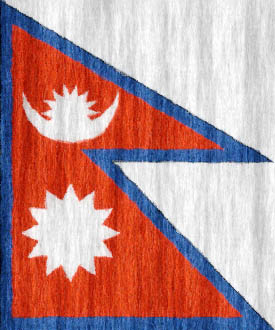AFP
Kathmandu
Nepal signed its first ever fuel agreement with China yesterday for Beijing to supply petroleum to ease a crippling shortage after protests blocked imports from sole supplier India, an official said.
Scores of trucks have been stranded at a key India-Nepal border checkpoint for more than a month, cutting off vital supplies and forcing fuel rationing across the landlocked Himalayan nation.
The shortages have led to overnight queues at gas stations in the Nepalese capital and prompted the government to turn to its northern neighbour for help, ending a decades-long monopoly by India as tensions deepen between New Delhi and Kathmandu.
“We have signed a MoU (memorandum of understanding) with China National United Oil Corporation to supply the petroleum products that Nepal needs,” said Deepak Baral, spokesman at the state-run Nepal Oil Corporation.
“This is the first time that China is commercially supplying petroleum to Nepal, so we need to study various aspects like price and transportation of the fuel,” Baral said.
Beijing has already agreed to donate 1.3mn litres of petrol to Nepal but the two countries have never commercially traded oil or gas.
Kathmandu is exploring the possibility of transporting fuel via its northern land crossings with China, one of which reopened this month after suffering damage in the earthquake that caused widespread devastation in the impoverished country in April.
Nepal has traditionally relied on its border crossings with India for trade, with the flat plains easing the transport of imports and exports, while avoiding the mountainous terrain of the northern routes.
But the movement of cargo has slowed to a crawl in recent weeks, with hundreds of protesters blocking a bridge crossing in the town of Birgunj, around 90km (55 miles) south of Kathmandu since September 24.
Transport of goods via other checkpoints along the Indian border has also suffered, provoking the Nepalese government to accuse New Delhi of backing the protesters and imposing an “unofficial blockade” to register its dissatisfaction with the new constitution.
New Delhi has denied the claims and has urged dialogue with protesters, who belong to the Madhesi ethnic minority and have close cultural, linguistic and family ties to Indians living across the border.
The constitution, the first drawn up by elected representatives, was meant to cement peace and bolster Nepal’s transformation to a democratic republic after decades of political instability and a 10-year Maoist insurgency.
But it has instead sparked deadly violence.
More than 40 people have been killed in clashes between police and ethnic minority protesters, who say a new federal structure laid out in the charter adopted last month will leave them under-represented in parliament.
Work on the constitution began in 2008 after the Maoist rebels laid down their arms and entered politics, winning parliamentary elections and abolishing a 240-year-old monarchy.

